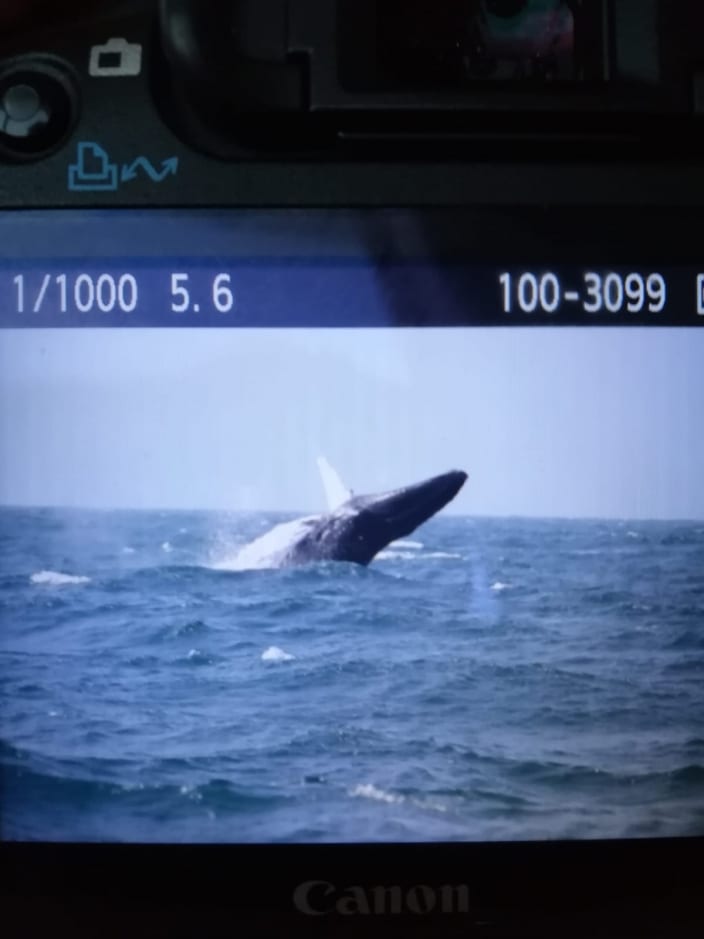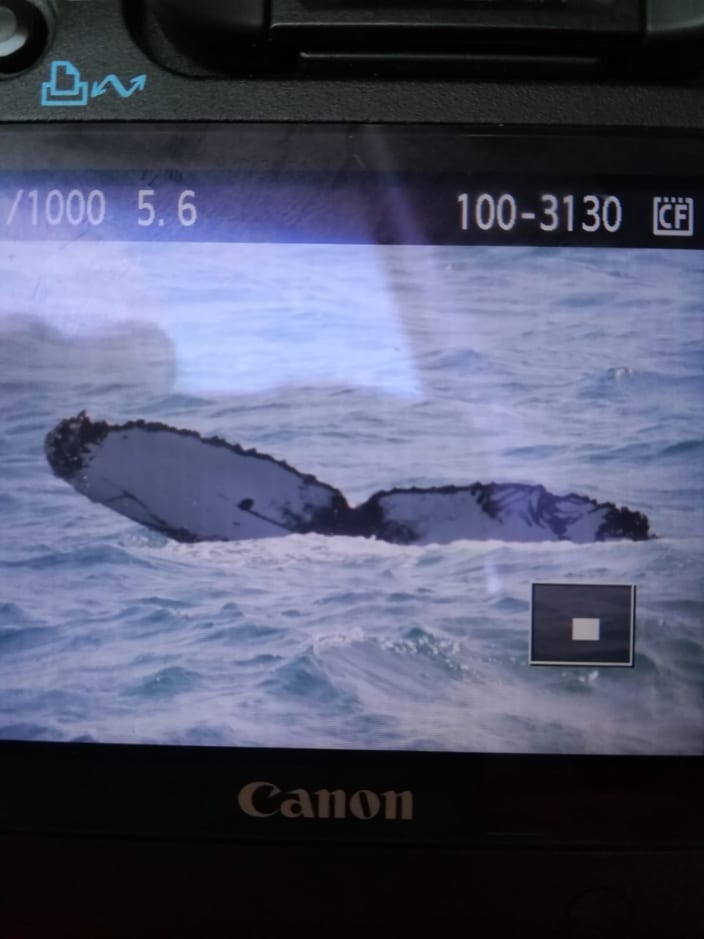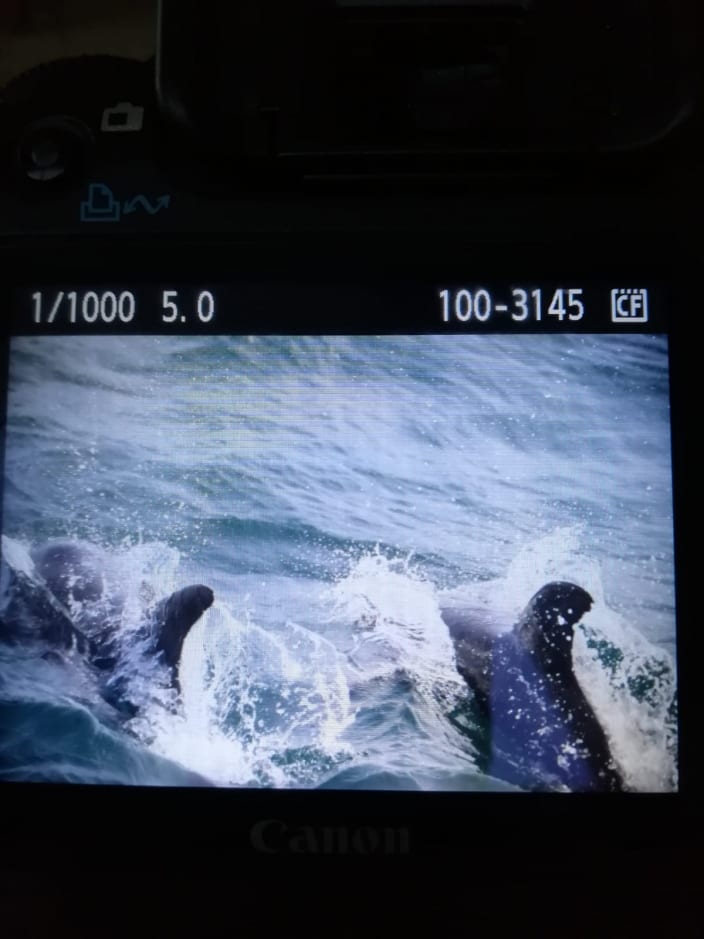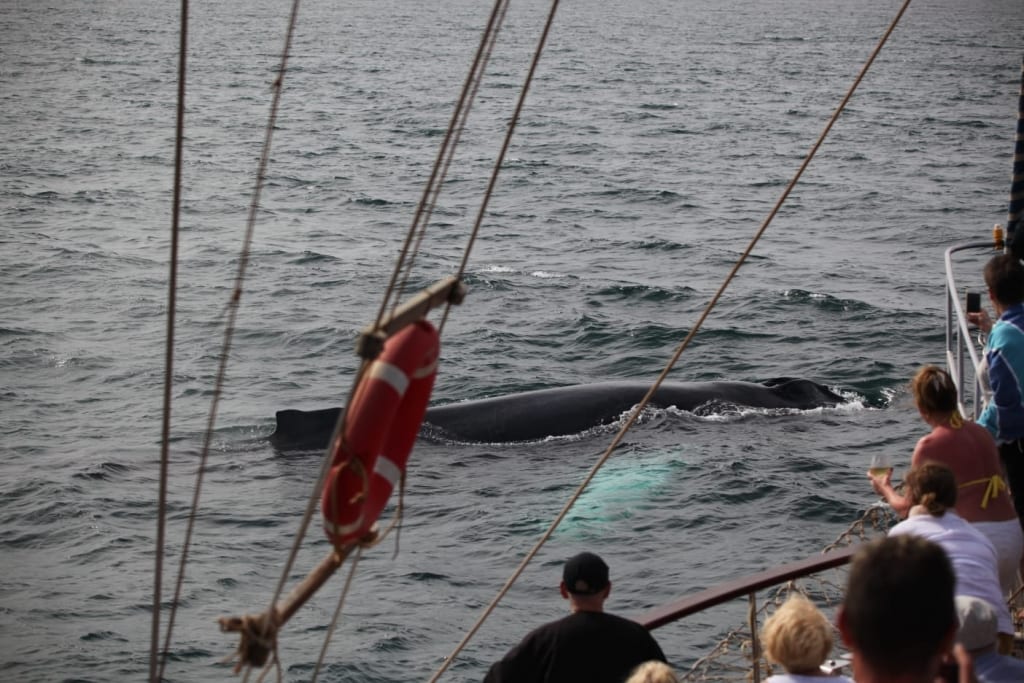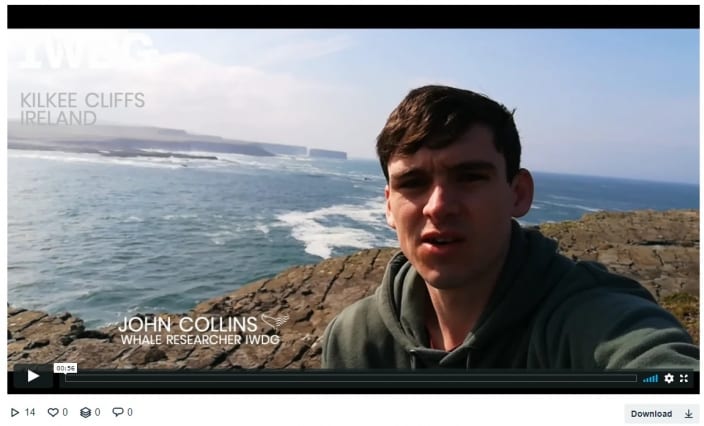27 March 2020
The whale-watching and research on Humpback Whales came to a halt in the past week. We had a noticeably good start to the season, seeing whales on all but one boat trip. The images that we were taking of tail flukes and dorsal images, showed that there were many whales passing through the sheltered bay. A typical boat trip into the bay, would produce, between one and four whales. A full day trip traveling a greater distance to the south spotted eleven whales and two Manta Rays which was amazing!
It was great to see Humpback mother and calves in areas of the bay as shallow as seven meters. Mother and calf pairs seemed to be the most sensitive to the presence of boats and quickly displayed avoidance behavior. Unfortunately there is no existing legislation to protect these whales. Hopefully international whale watching standards will be introduced here in the future. I found that the boat skippers and crews wanted to do the right thing and not stay with whales too long and to keep some distance from the whales. While this is encouraging there is still plenty to work on, It seemed clear to me, that it is in everyone’s interest to follow these guidelines. Passengers responded well when informed that we were keeping a distance to avoid stressing whales. Good communication is so important when working with people.
It was great to see whales breaching, tail slapping, pectoral fin slapping, but for us, the most important thing was taking photo identification images. In such a short time we contributed to some brilliant matches with Northern Norway, Guadeloupe island and significantly for Irish research efforts, the second match between a whale recorded in Ireland and a breeding ground.
https://iwdg.ie/2nd-irish-humpback-match-to-the-cape-verdes/
The season was shorter than expected but it was a rich learning experience. I was fortunate to work with a good team of people who were very welcoming. The whales will be back next year as will the research effort!
John
22 March 2020 – Week 3
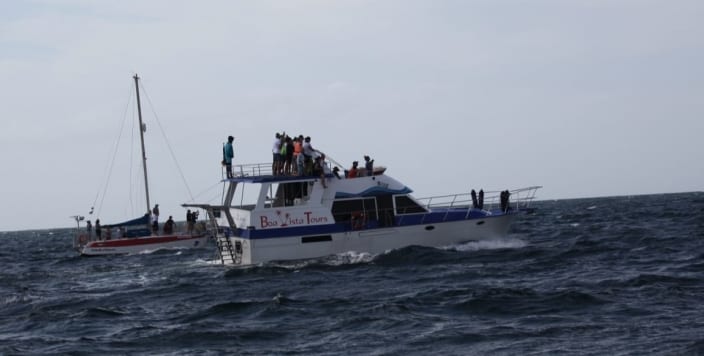
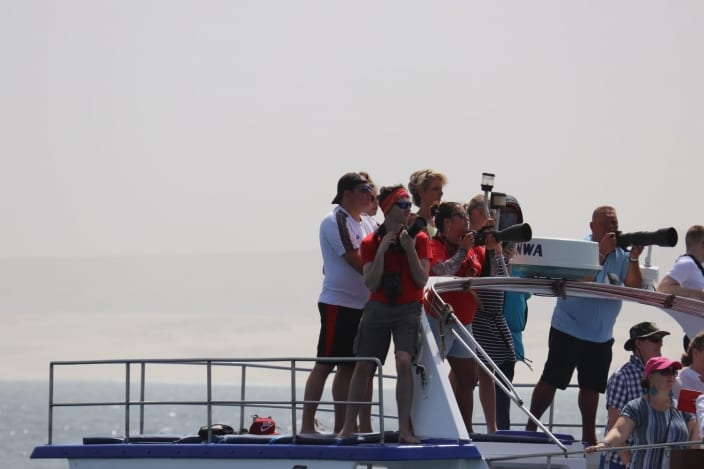
Our season for research has ground to a halt over the past week. We have been so fortunate to have had a quick start to the whale season on Boa Vista. Many photo -id images of tail flukes and dorsal fins have been shared with colleagues all over the North Atlantic. We are thrilled to contribute to an exciting match to Guadaloupe Island and another to Northern Norway. Hopefully we will continue to hear about more matches we have contributed to in the future.
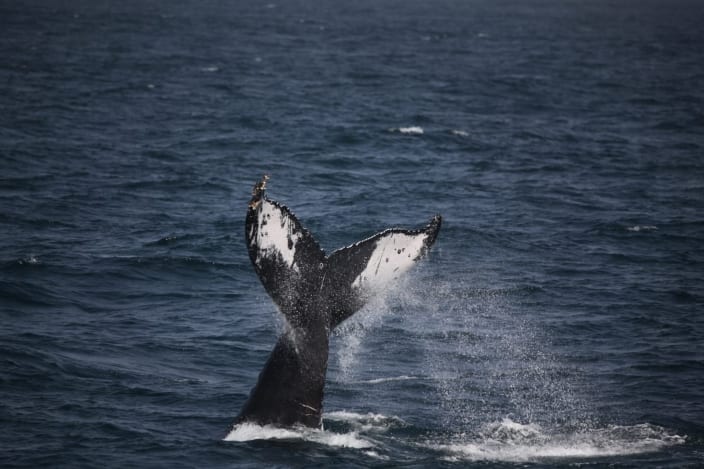
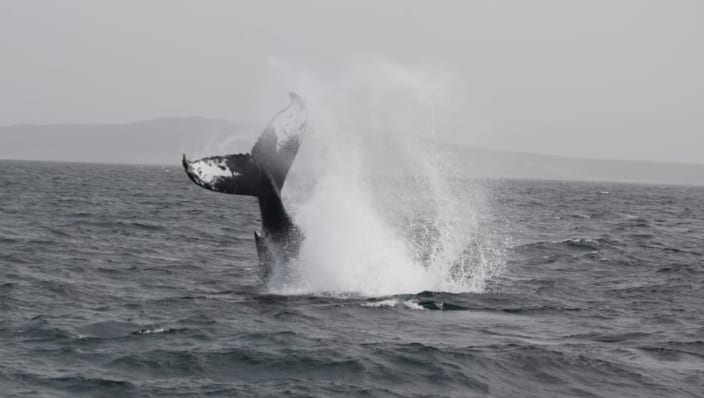
Recently boat trips had reduced with a decline in tourists due to the coronovirus. Three tourists have been confirmed to have the coronovirus. Boat trips have consequently ended for the foreseeable future. Of course we are disappointed that we can’t continue our fieldwork but we also feel so fortunate to have shared such enjoyable and rich experiences to date. We are looking for the silver linings of this situation and will hopefully be able to get out to sea again soon.
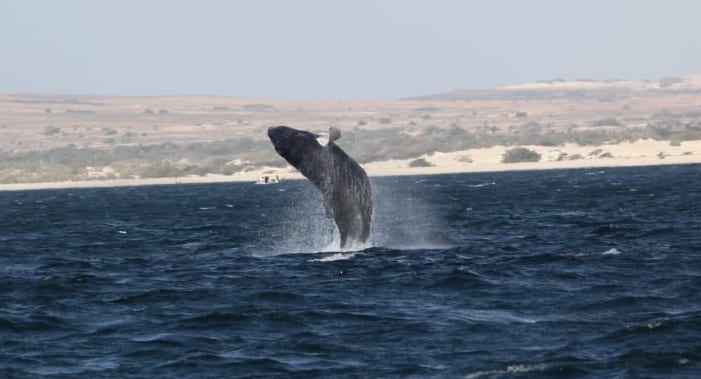
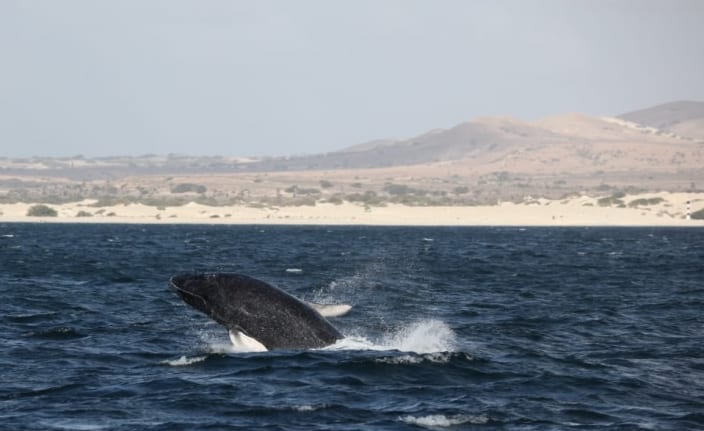
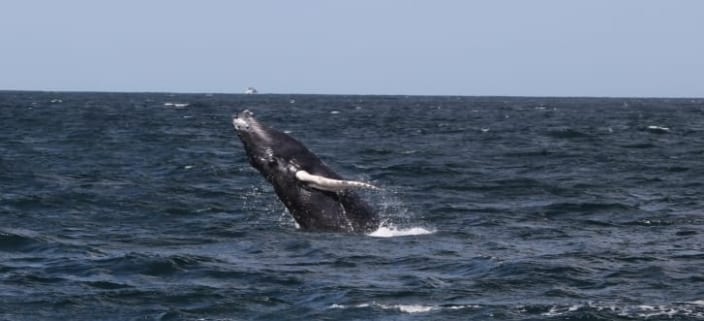
I found myself on the last whale watching trip. We had a feeling it would be the last one so we appreciated it as much as we could! Eventually we found a mother and calf in the southern area of the bay outside Sal Rei. We were so lucky to have had the best views all season of a calf. It breached for thirty minutes and at times close to the boat! The return journey to port was great fun with the crew and a really engaging group of whale enthusiasts. Hopefully there will be more to come!
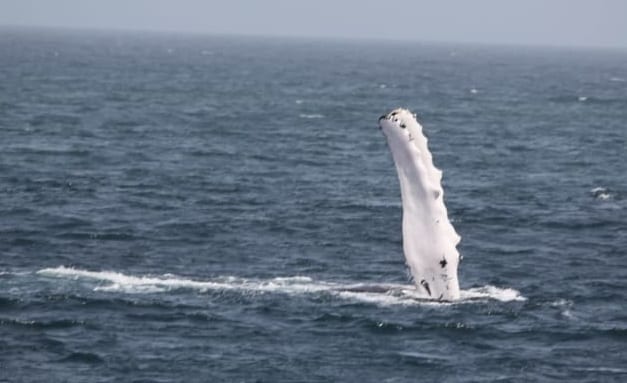
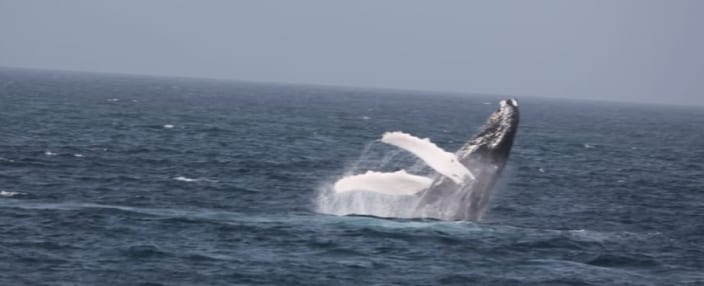
All images: John Collins
15 March 2020 – Week 2
The past week in Boa Vista has been hectic with whale watching trips every morning and evening. At times the humpbacks have been really active at the surface, breaching and tail slapping! Photo-identification images are coming in daily now.
The sun and heat is intense. It is very difficult to sit still with all the interesting things to do here. There is plenty of other marine life to keep us on our toes such as the two Manta Ray, turtles, Red-billed tropic birds, flying fish and various dolphin species!
John Collins
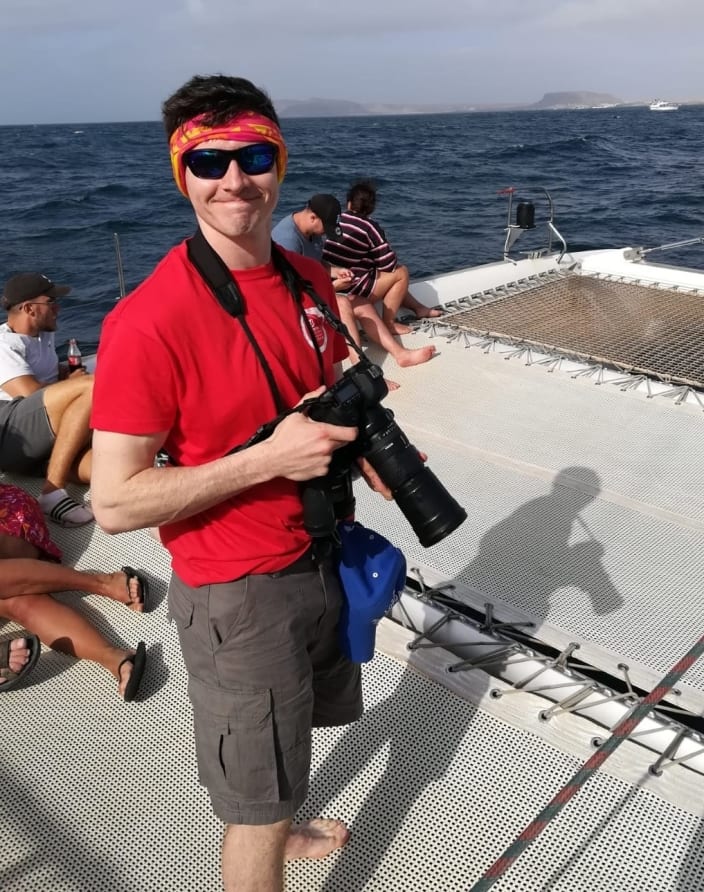
9 March 2020 – Week 1
The IWDG are supporting a whale researcher to join a team in Cabo Verde to monitor humpbacks whales at their breeding grounds in this island archipelago. The IWDG have long suspected that some of the humpbacks feeding in Irish waters each year breed in Cabo Verde.
After seven expeditions to Cabo Verde in search of humpback whales, including two during Autumn, the IWDG finally made a match between Cabo Verde and Ireland, a single individual photographed off Boa Vista and County Kerry.
John Collins, native of Ennis Co Clare, and recent graduate from the Galway-Mayo Institute of Technology, will join the whalewatching guiding company Naturalia on Boa Vista for the duration of the spring humpback whale breeding season.
John will also help Bios CV with their research on humpback whales and the unique wildlife of Cabo Verde.
After a few days on Boa Vista John Collins reports:
“A couple of days down in Cape Verde. The multi-national team of naturalists have settled in nicely. We will be collecting photo-id images of humpback whales to track whales between here and feeding grounds. We will also be giving information to tourists onboard.
It’s hot! Too hot at times and there is a constant northerly wind. We’ve seen Ospreys, Green turtles, White-faced petrels, Red-billed tropic birds and the coral reef ecosystems. Seeing all of this has been an unbelievable learning experience!”
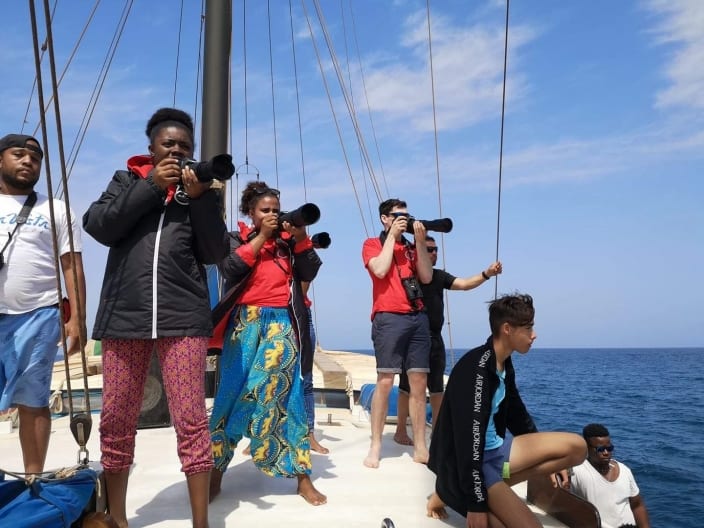
Follow his weekly vlogs (video logs) and updates during his two month adventure in Cabo Verde.
Check out our dedicated IWDG Cabo Verde Research Facebook Page:https://www.facebook.com/IWDG-Cape-Verde-Humpback-Whale-Expeditions-491580284277939/
